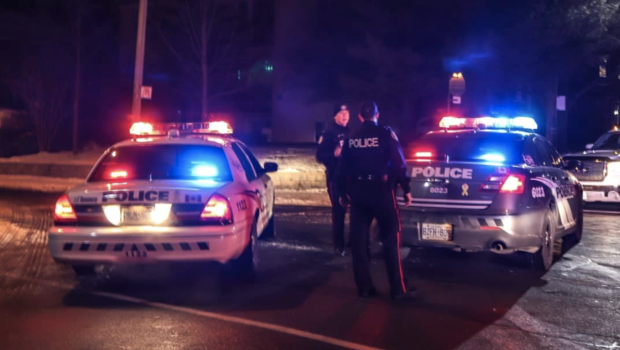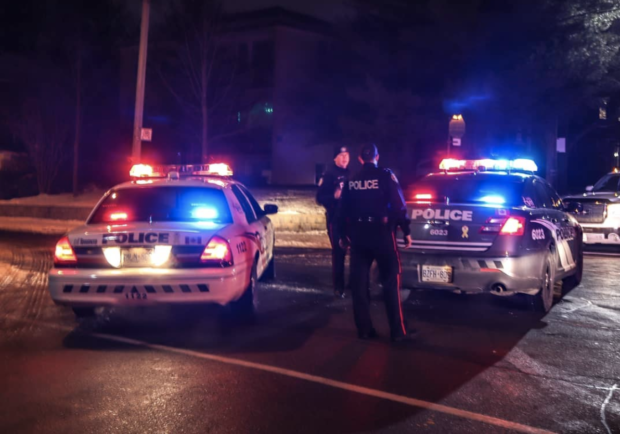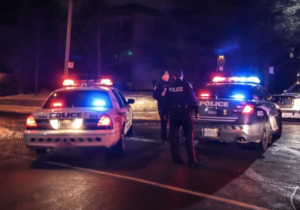

Bill C-46 may further strain relationship between youth and Toronto Police
CanadaNewsPoliticsToronto Jan 15, 2019 Michelle Ramos

In an effort to crackdown on impaired driving, the Federal government introduced Bill C-46, which was passed in June.
The new impaired driving laws came into effect on December 18th, 2018 across Canada. The new laws allow police to demand breath tests from drivers without probable cause, but young people might be at a greater disadvantage.
Legislation under Bill C-46 states that it is a criminal offence to have too high of a blood alcohol level within two-hours of driving.
This two hour rule means police can show up at a suspect’s homes, workplace, or wherever they happen to be at the given time.
These impaired-driving laws which followed the legalization of Cannabis, have made Canada’s laws amongst the toughest in the world.
The new laws have created some outrage from the public, with many seeing this as a form of “over-policing” and a legal form of “carding”.
There is uncertainty on how this will affect young people and visible minorities.
In an interview with Alexander Shvarts, a sociology professor at Humber College, he notes that the current relationship between young people and racial minority groups have experienced a lot of tension over the decades due to the panic about youth crime created by politicians and the media.
There are also concerns that police will be more likely to target youth and minorities because of misconceptions about drug and alcohol use within this demographic.
According to Shvarts, “The new impaired driving laws have increased police powers to allow them to stop people without cause in order to check their drug or alcohol blood level…There is also a valid cause for concern that they will target youth disproportionately as well because of the perception that youth are much more likely to do drugs and drink and then get behind the wheel.”
Concerns about the new laws affecting low-income and high-crime areas are also being voiced due to higher rates of police misconduct within these groups.
According to the ongoing human rights commissioner’s report, cases of police misconduct including unjustified and inappropriate searches are higher in low-income & high-crime communities, and amongst visible minorities.
The report is a result of accumulating allegations of racial profiling by Toronto Police.
The review finds that members of the black community were especially overrepresented in SIU cases involving Toronto police officers over the last 7 years.
Questions are also being raised about the possibility of having a disproportionate number of ride check stops in specific Toronto neighbourhoods.
“Civil rights groups do have a right to be concerned because based on the report that just came out proving systemic racism and racial profiling in policing in Ontario and Toronto, especially in terms of stopping, carding, and charging racial minority groups at a disproportionate rate, there is a fear that this will now happen with cops stopping racial minority drivers disproportionately to check for intoxication without probable cause.” says Shvarts.
According to lawyers, the new legislation is unconstitutional, and could result in wrongful convictions.
“From the police and politicians’ perspective, they believe that this will decrease the likelihood that people will risk getting behind the wheel while intoxicated, and that the police will be able to catch more offenders. I think that the new laws may eventually be challenged under the Charter of Rights and Freedoms.” says Shvarts.
Jack West, a Humber professor in Police Foundations points out that these new laws can invite a Charter Challenge, however he believes the legislation is for the benefit and safety of Canadian motorists.
“With my 40 years of experience, I have found young people support the fight against drinking and driving, both alcohol and drugs. One person is killed everyday as a result of an impaired driver.”
He also notes that the relationship between police and young people are dependent on one’s experience with police.
“I don’t see a lot of police demanding a breath sample unless there are signs of symptoms of consuming alcohol or drugs. The same thing is happening in the UK. Impairment has dropped as a result.” says West.

